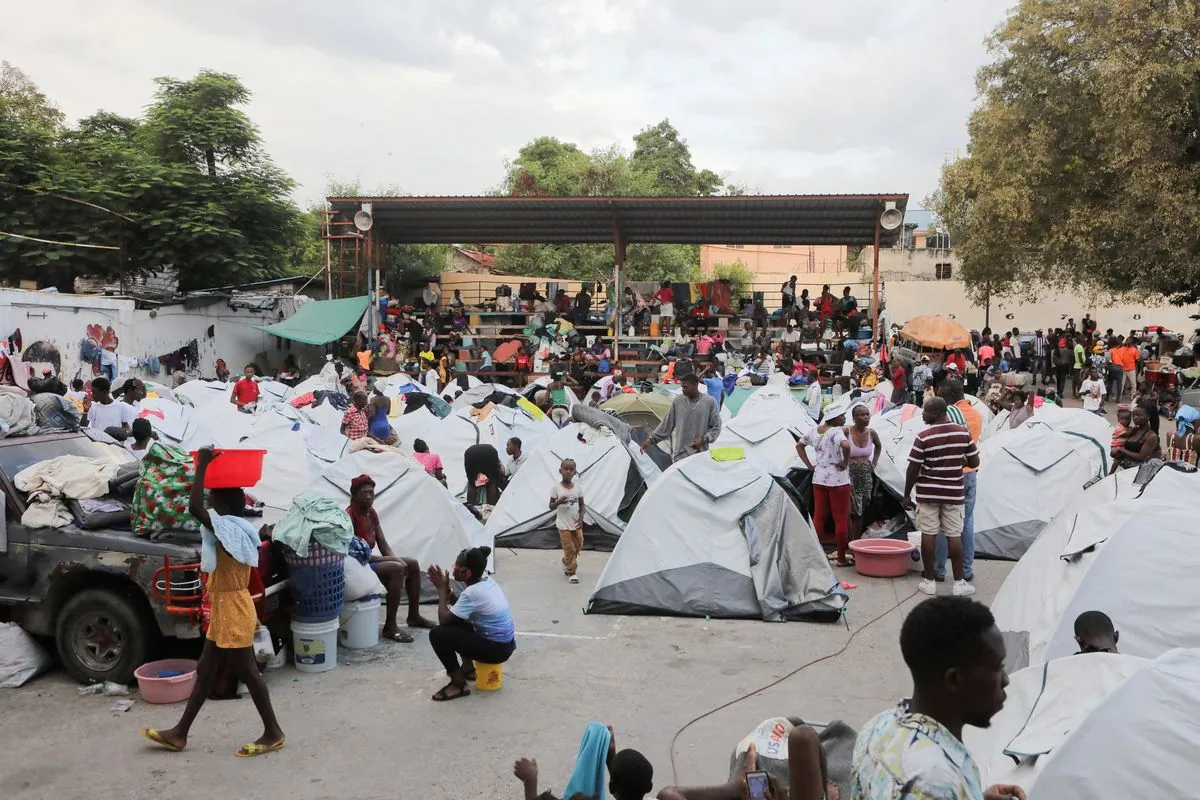The ongoing gang conflict in Port-au-Prince has triggered a significant population shift in Haiti, with over 578,000 individuals, representing 5% of the nation's populace, relocating since 2021. This mass exodus has intensified in recent months, with a 60% surge from March to May 2024 alone.
Claire Daphné France, mayor of Les Cayes, a southern city hosting approximately 30,000 displaced individuals, expressed concern about the strain on local resources. She stated, "We already had a population problem, but now all our problems are multiplied by four."
The influx of displaced people is transforming communities across Haiti, which were already grappling with their own challenges. The situation is particularly dire in the education sector, with the new school year, set to begin in October 2024, facing shortages of teachers and classrooms.
Haiti's history of political instability and natural disasters has compounded the current crisis. The country has experienced over 30 coups since gaining independence from France in 1804, becoming the first independent black republic. Moreover, Haiti's vulnerability to natural calamities, such as the 7.2-magnitude earthquake in 2022 and Hurricane Matthew in 2016, has left many areas still recovering.
The humanitarian situation in Haiti is alarming, with nearly half the population facing acute food insecurity. Despite this, international donors have only contributed 25% of the $674 million in aid requested by the United Nations.
Bruno Maes, UNICEF's representative in Haiti, highlighted the impact on children's education: "Violence has an impact on people and particularly children. That is adding an additional mental stress." Approximately half of the internally displaced individuals in Haiti are children, most of school age.
The economic repercussions of this crisis are severe. Elsa François, who fled Port-au-Prince in December 2023, shared her struggles in Jérémie: "Despite the struggle, I won't go back." Her story reflects the challenges faced by many displaced Haitians, including difficulties in paying rent, school tuition, and adapting to new economic conditions.
As Haiti grapples with this unprecedented internal displacement, the international community's support and effective governance will be crucial in addressing the multifaceted challenges facing the nation and its people.
"They're used to dealing with earthquakes. They were able to deal with Hurricane Matthew. They were able to deal with all sorts of natural disasters. But this new wave of violence is harming a lot of people and the local authorities are simply overwhelmed."
